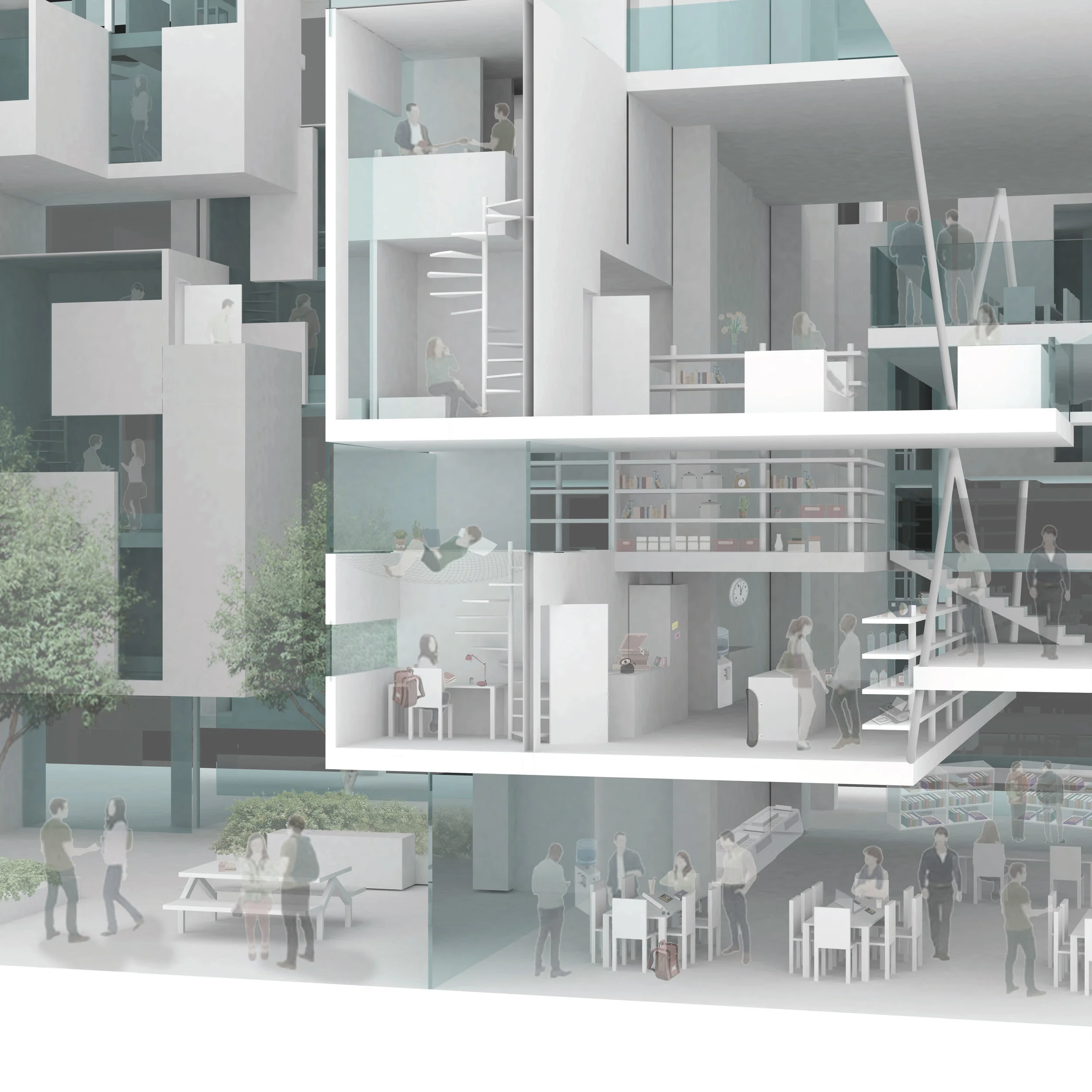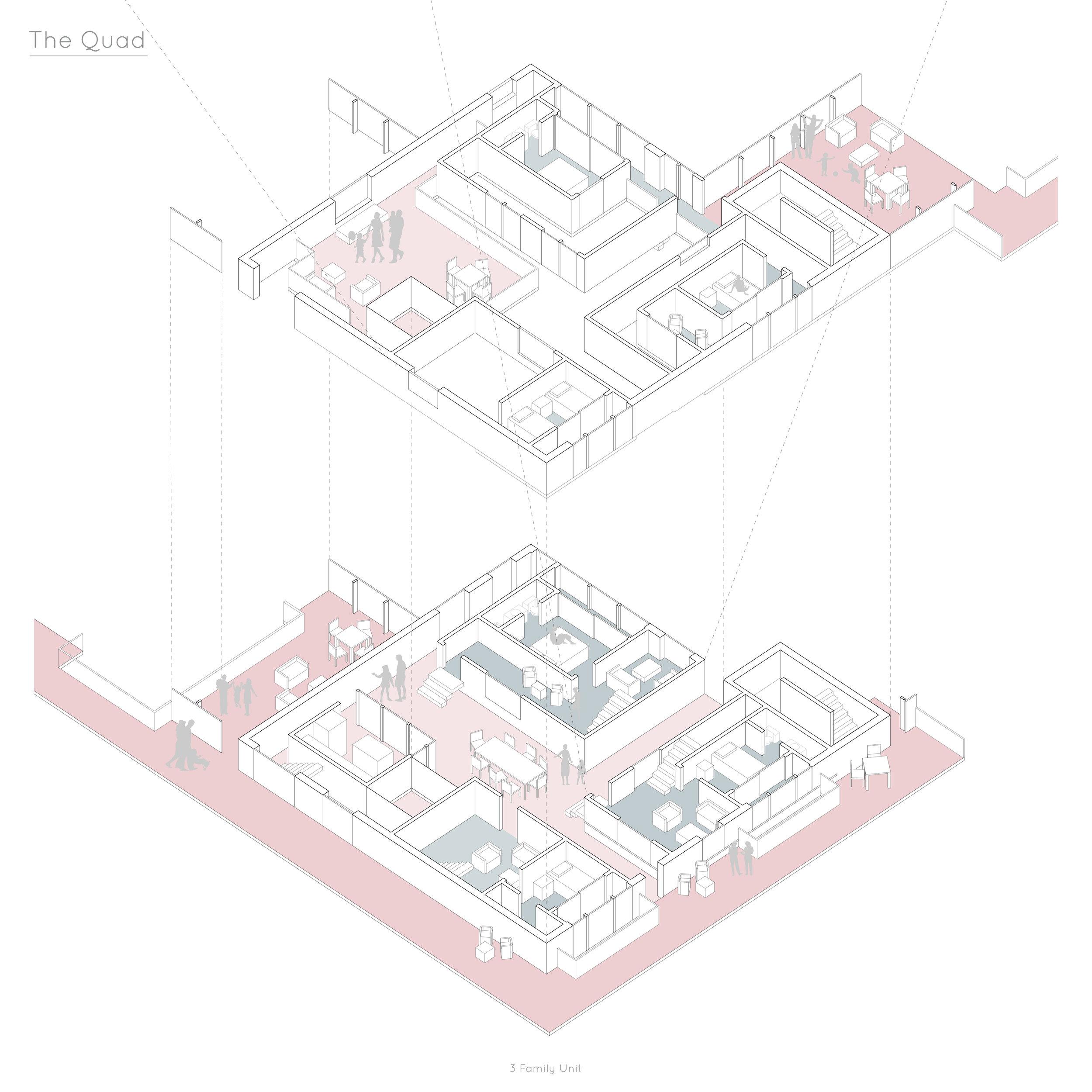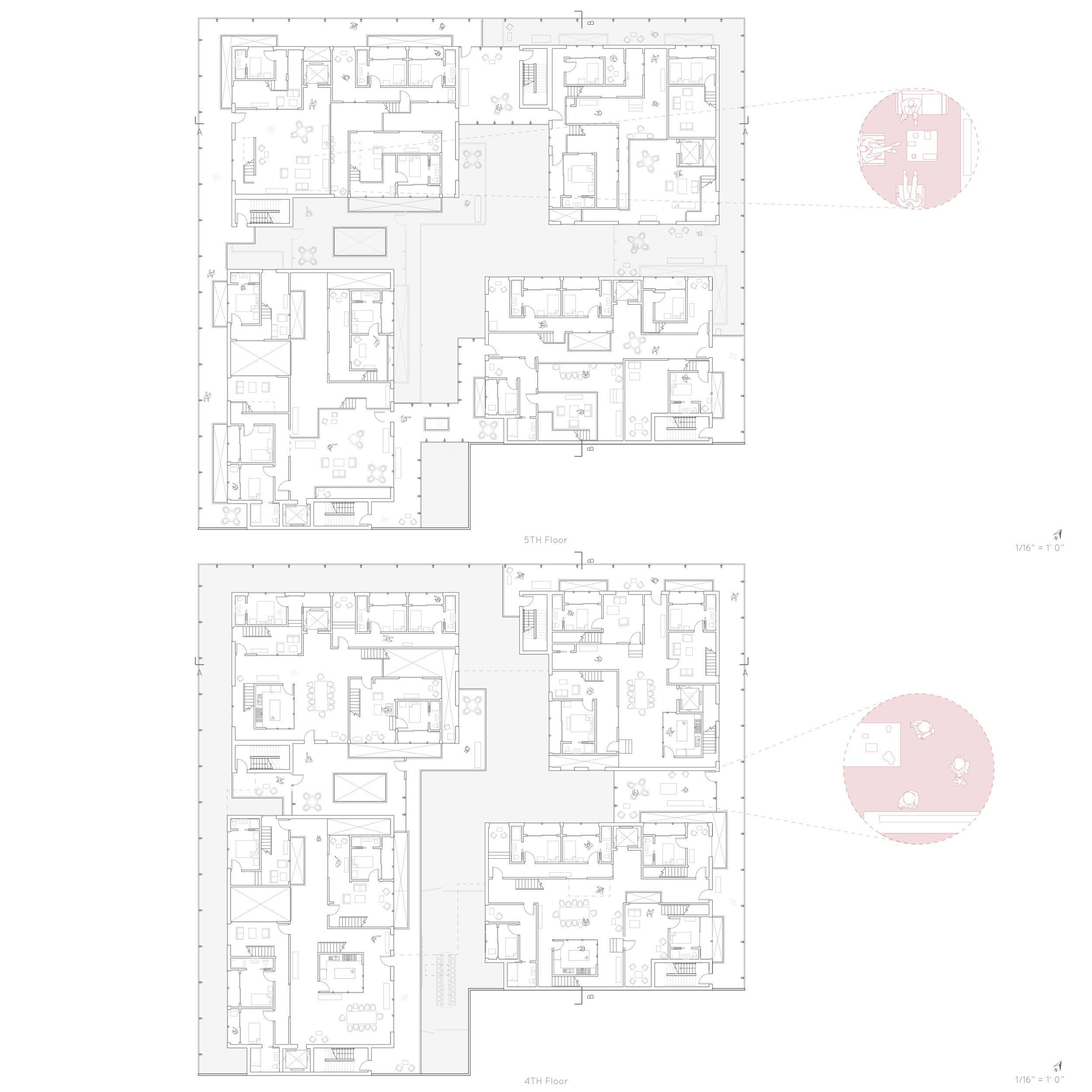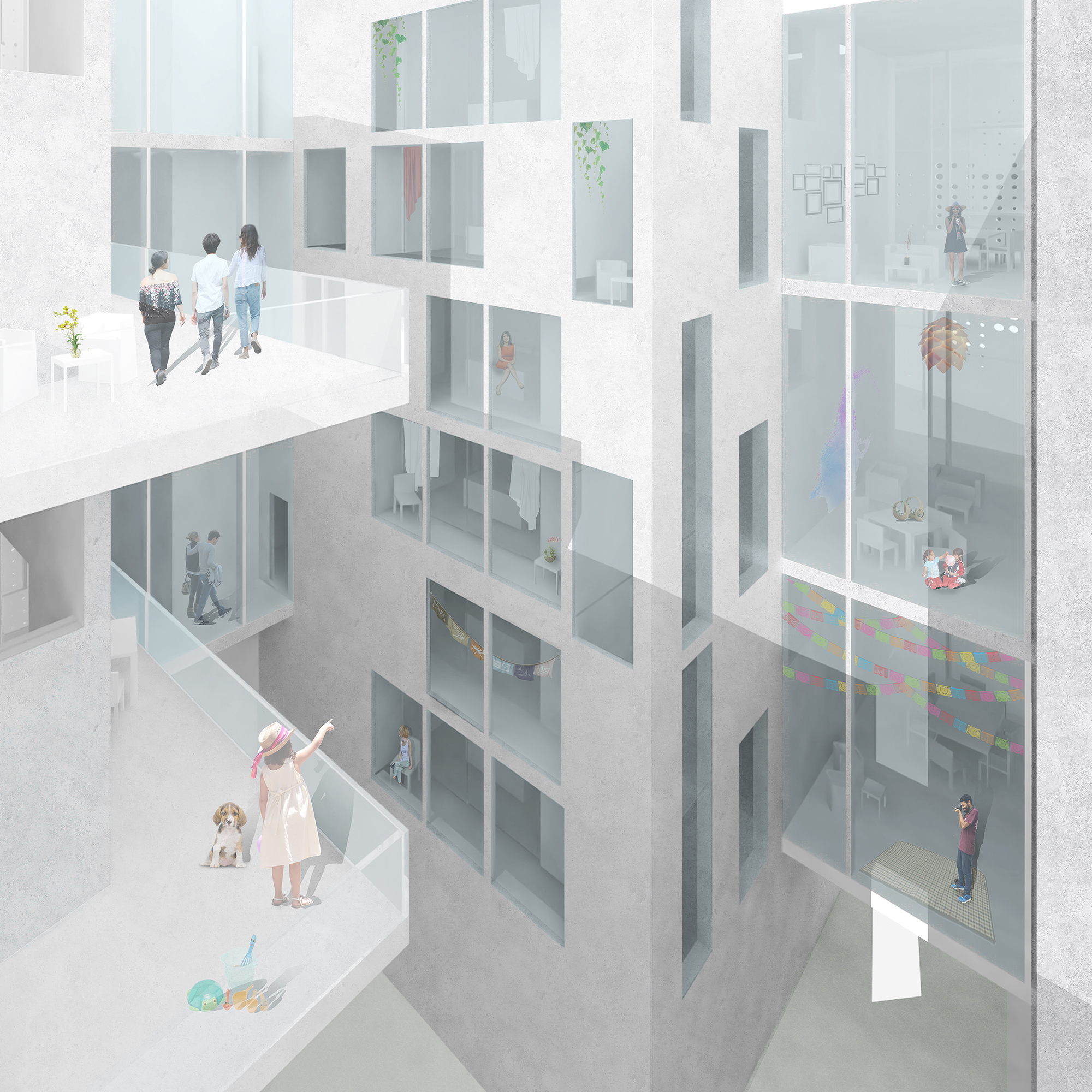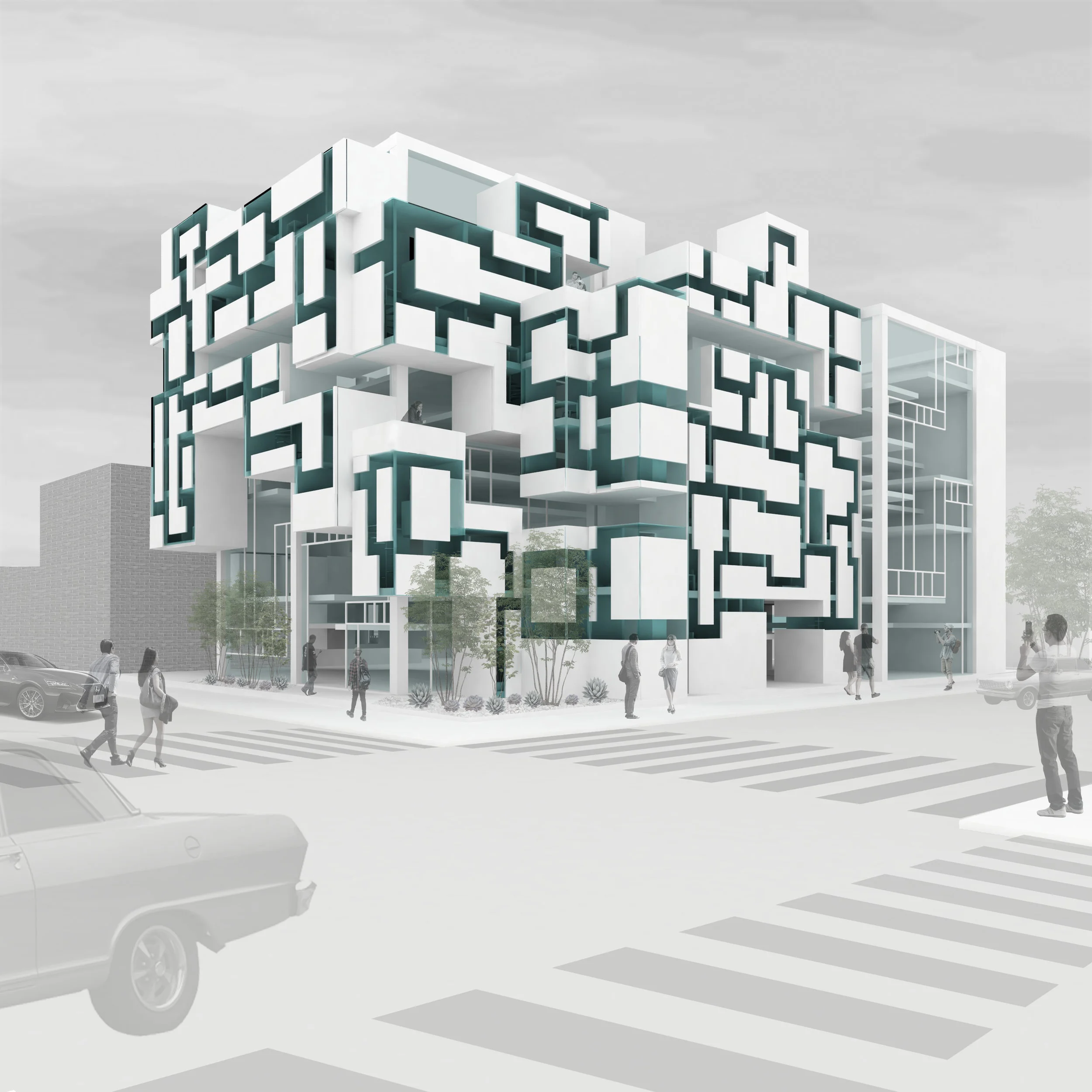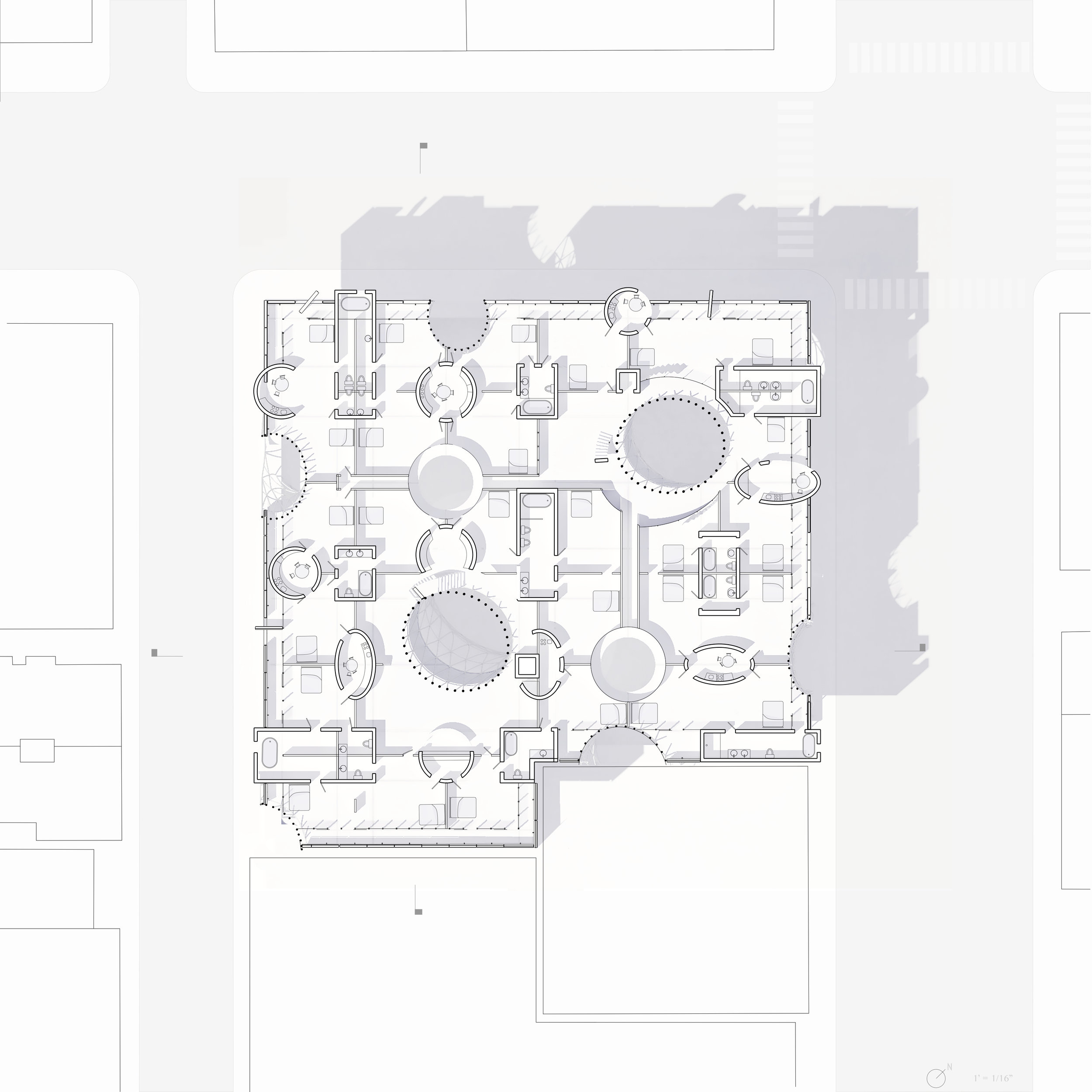Cera Yeo: “The Beta Collective”
Housing the Urban Family
Project: Living Together - Housing the Urban Family
Class: BArch Studio 4, California College of the Arts, Architecture Division
Date: Spring 2018
Instructors: Antje Steinmuller & Chris Falliers, Neal Schwartz
Architecture, by its very nature, gives form to spatial relationships and hierarchies. As such, it engages in the distribution of spatial resources in the city. In San Francisco, where space has become an expensive commodity, rethinking how we use and share space through the lens of architecture, therefore, becomes a political act. This studio examines potential new typologies for multi-unit housing that investigate architecture’s role in the current affordability crisis. Specifically, we will argue that architecture and we as designers have agency in enabling the formation of new and meaningful social units new urban families in the context of current trends of collective living. Our hypothesis is that if we develop new typologies for urban housing that are more shared, housing might be both more accessible and more tuned to the needs and lifestyles of today’s urban dwellers. In what ways might the increasing ability of ‘peer-to-peer’
sharing of resources, including housing, have the potential to distribute urban spatial resources more equitably?
In this studio, we will focus on coliving for ‘urban families’, defined here as a contemporary social unit with inherent kinds of dependency and specific mutually beneficial relationships. Students will consider coliving scenarios for two distinct populations whose needs and lifestyles, when brought in dialog, create win-win situations beyond the merely economic advantages of sharing dwelling space. This might entail an exploration of generational dependency (between adults and children, adults and seniors). Alternatively, students can explore what we might call a contemporary dependency composed of two different populations of a similar age group, but with distinct needs, for whom coliving creates mutual benefit.
_ partnership
Both traditional and contemporary notions of ‘family’ are shaped by their context and culture. To enrich our conversation about meaningful social units and concepts of sharing, the studio will partner with Soongsil University in Seoul whose third-year studio, led by Professor Jungin
Kim, is pursuing the same topic. Five years ago, the metropolitan government of Seoul, San Francisco’s sister city, proclaimed a Sharing City Seoul initiative that is intended to make better use of idle urban resources. Among many peer-to-peer sharing enterprises, Seoul is also home to a range of coliving experiments and offers rich typologies of collective urban living rooms (‘pangs’). The two studios will share research and design proposals and come together for a 1-week workshop around “designing the commons” in the second half of the semester.

